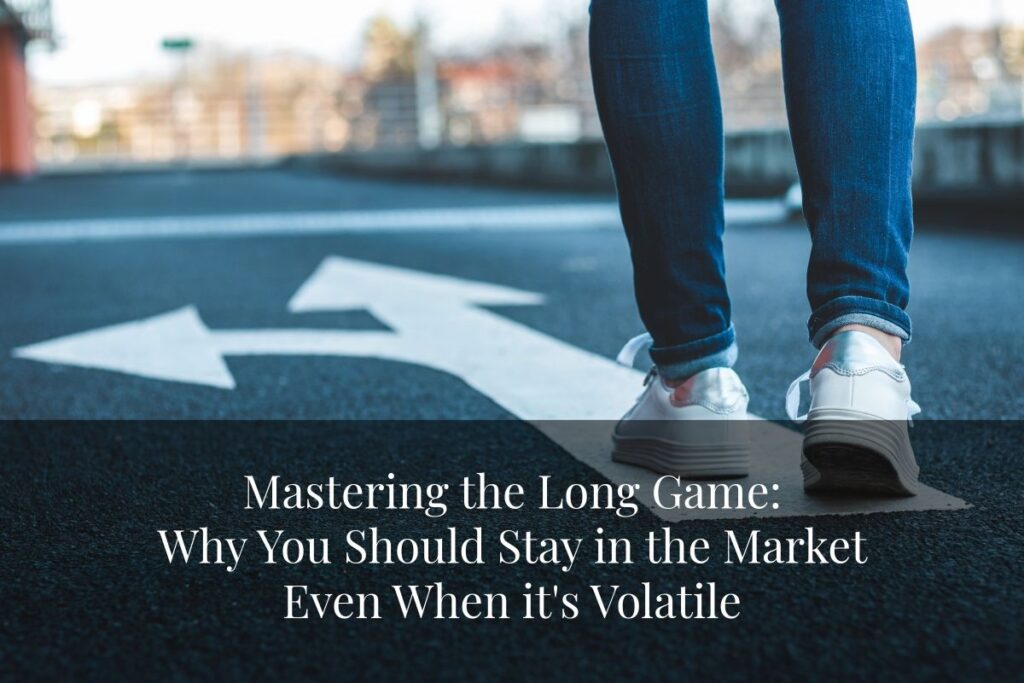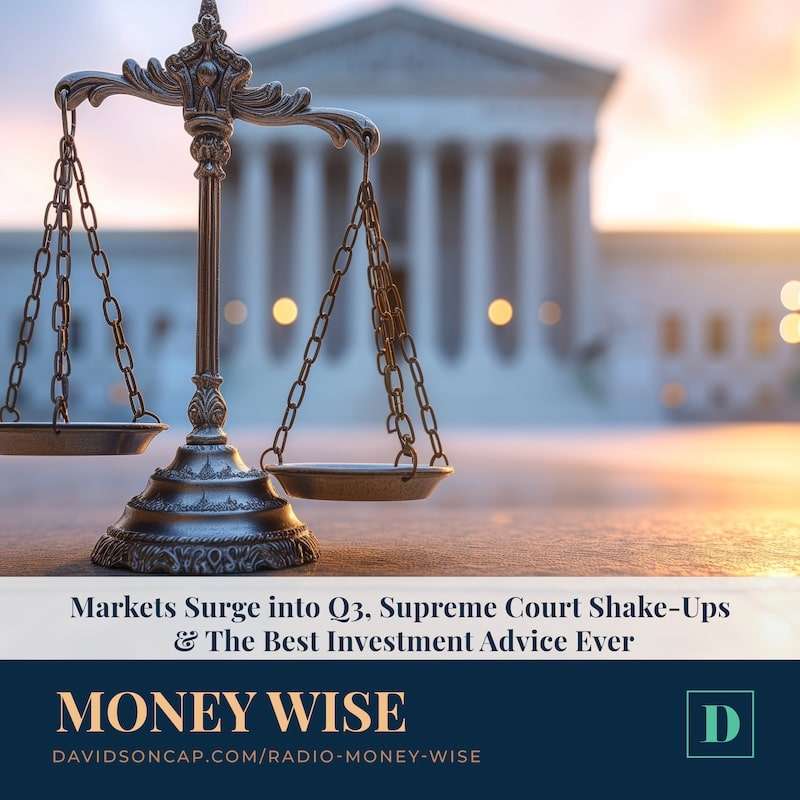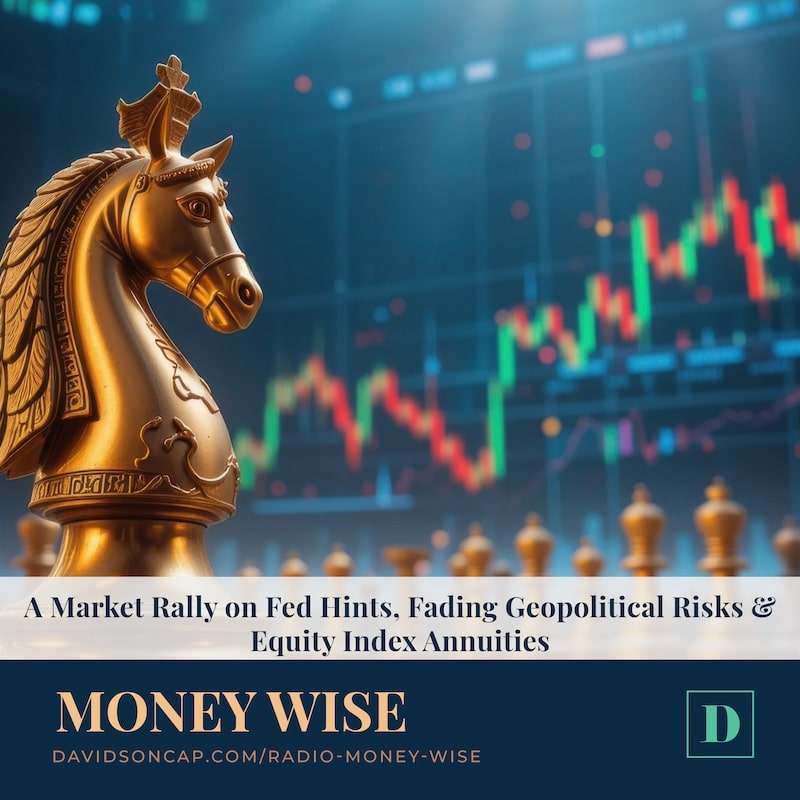Why Riding Out Market Volatility Serves Your Long-Term Interests
If the phrase “market volatility” strikes fear into your heart, you’re not alone. For many investors, it might trigger significant anxiety, with thoughts of price swings, portfolio losses, and overall instability in your investments. Even when you understand that market volatility is a natural part of investing and have mentally prepared for the ups and downs, periods of decline can still cause significant stress. It’s completely normal to feel a mix of emotions, including outright fear, when the markets are unpredictable. However, it’s crucial to stay in the market even when it’s volatile. Let’s explore why resisting the urge to sell and maintaining a long-term perspective is key.
Let’s Review: A Brief History of Market Resilience
If you listen to our radio show, you know we always say that past performance is not indicative of future results, and this is absolutely true when it comes to individual investments. Overall, however, the data shows that the market has trended upward for the past 30 years. This is despite decade after decade of wars, virus outbreaks, recessions, natural disasters, Presidential elections, and financial crises. Despite it all, the markets have continued to climb higher.
Now, it’s also true markets do not go up in a straight line and at times investors can suffer unrealized losses in the portfolios. You may have personally felt those unrealized losses deeply at the time. However, these down times have all been followed by recovery periods, which are critical to remember before you make a major move like exiting your investments turning unrealized losses to actual realized losses. Investors who chose to remain in control of their emotions by sticking it out through market ups and downs over the past thirty years have seen cumulative growth in their portfolios despite short-term volatility.
SEE ALSO: Mind Over Money: Navigating Investor Psychology Pitfalls
The Hard Truth: Cashing Out Usually Means Missing Out
It’s easy to let emotions take over, especially when you’re focused on protecting your retirement savings or stabilizing your family’s financial future. Money often has strong emotional ties, making it tempting to make hasty decisions during market downturns. However, investors who sell in a panic during a downturn usually face two significant downsides: they’re likely selling at a loss and missing the eventual market rebound.
While it may feel instinctively right to sell during turbulent times, these types of emotional decisions can be short-sighted. Exiting the market, even during extreme volatility, can lead to substantial long-term losses. So, this is another reason to stay in the market even when it’s volatile.
Time is On Your Side – Stay Invested!
The Rolling Stones weren’t wrong when they sang “time is on my side”! Let’s be clear about what this means, though: trying to time the markets is impossible, and investors who try to exit and reenter the markets strategically usually lose out. Even seasoned professionals aren’t successful when they try to time the markets! Time is truly on your side when you stay the course, remaining in the market and riding out the volatile times.
Why is this true? Well, it’s due to the relationship between time and volatility. It’s a fact that investments held for a longer period of time tend to exhibit lower volatility. Conversely, those held for shorter periods of time often leave you open to more short-term volatility risk. That’s why, the longer you invest, the more capable your portfolio becomes of weathering low market periods. Consider, too, that a commitment to long-term investing can provide tax advantages on capital gains if your investments are in a taxable investment account. While short-term realized gains are taxed as regular income, long-term realized gains held for 12 months or longer are taxed at a long-term capital gain tax rate of 15%-20% (depending on your income and tax filing status).
SEE ALSO: Six Advantages of Working with a Registered Investment Advisor
Stay in the Market Even When It’s Volatile: Word to Live By
Emotional responses to a down market can quickly throw off your long-term financial plans, including your retirement strategy. In the heat of the moment, it might not seem like it, but sticking with the stock market through its ups and downs benefits your long-term financial goals. So, resist the urge to bail out during turbulent times. History has demonstrated that with patience, the market eventually stabilizes, bringing smoother sailing ahead. We like to say math doesn’t lie, so when calculating the performance of a $10,000 investment in the S&P 500 Index beginning July 1, 2004, through June 30, 2024, staying invested the entire time the annualized return was 11.02%. But missing just the 15 best performance days of the S&P 500 Index over this 20-year period the annualized return is dramatically reduced to 5.31%!
If you exited the market during a down period and you’re unsure how to reinvest, we can help! Contact Davidson Capital Management today to schedule a portfolio review and analysis. We’ll help you get off the sidelines with an investment strategy that is sound and personalized to your long-term interests.




